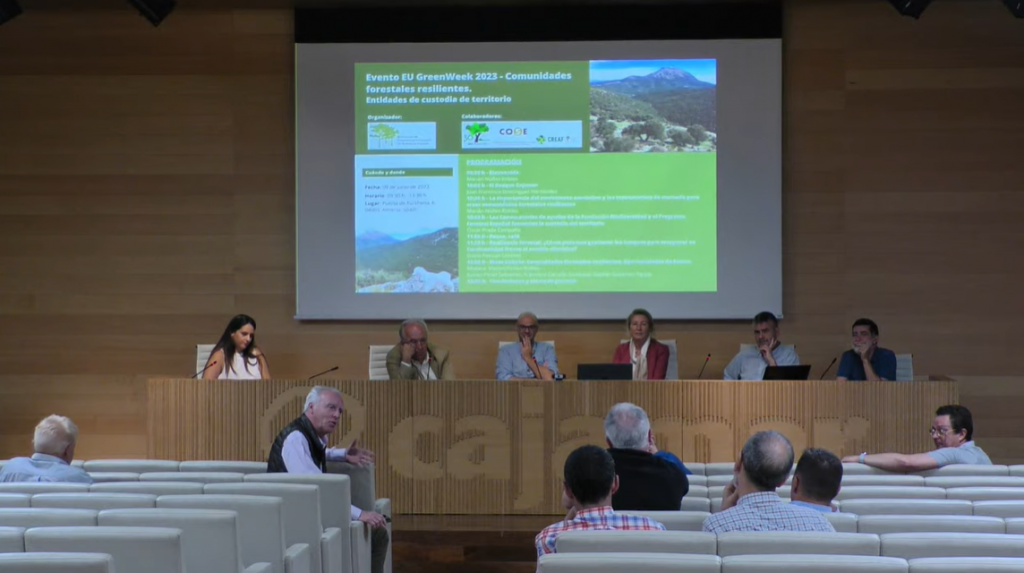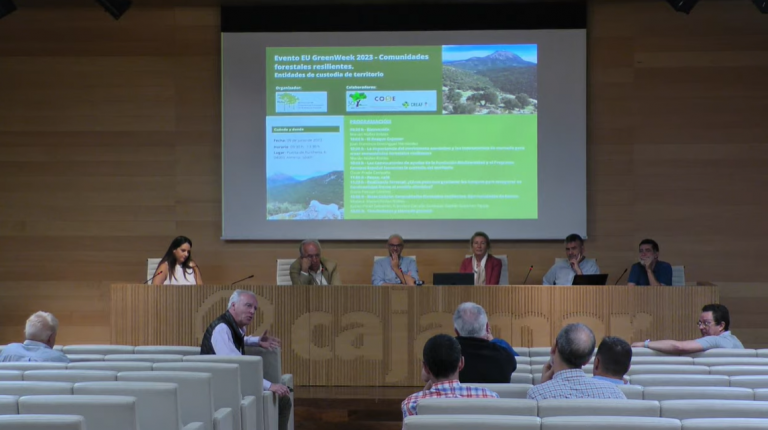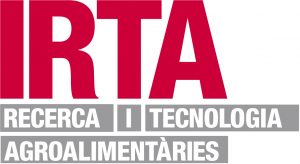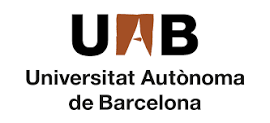Last Friday, 9th June, we participated in the EUGreenWeek 2023 event “Forest Communities, Resilient Land Stewardship Entities” in Almeria. The conference, organised by the Association of Forest Owners of Eastern Andalusia FORET and with the support of Cajamar, took place throughout the morning at the Casa de las Mariposas in Almeria and was broadcast live through the Cajamar Land Platform. The seminar was attended by around 40 people, both in person and online.
The seminar addressed the complex situation of our forests and woodlands, with the aim of adapting to the changes that are already taking place and to be able to implement actions that make our natural heritage more resilient. It is difficult to synthesise the valuable information given by the speakers, but we highlight here some of the messages:
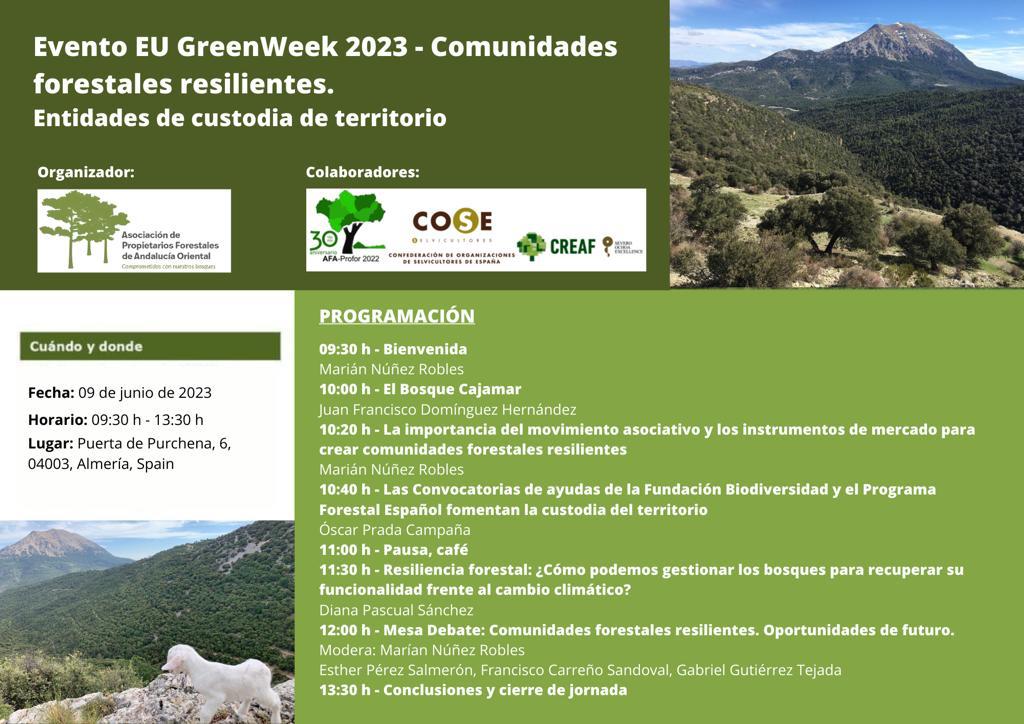
The day was opened by Manuel de la Torre Francia, Territorial Delegate in Almeria of the Regional Ministry of Sustainability, Environment and Blue Economy, who recalled the multiple functions and services generated by our forests and the importance of managing and maintaining them.
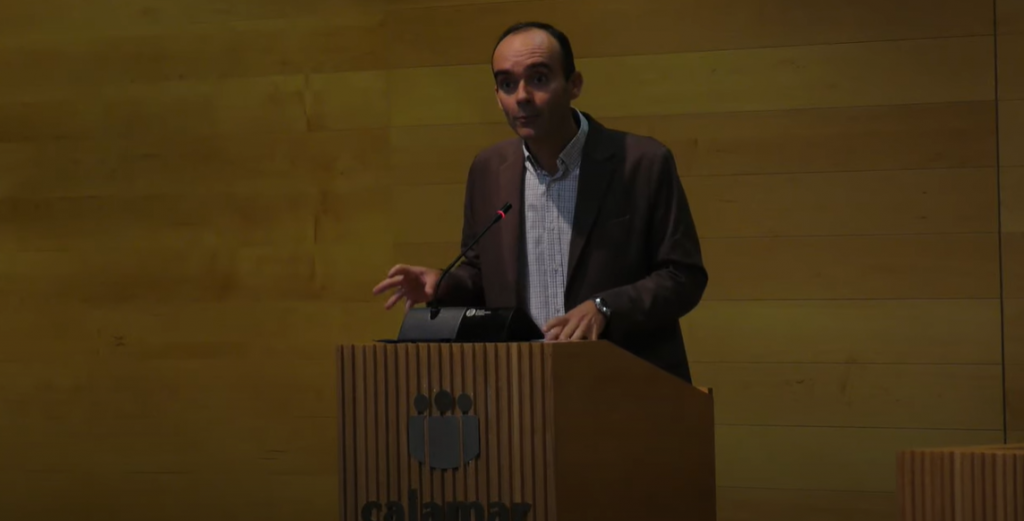
Juan Francisco Domínguez Hernández, from the Sustainable Development Department of Grupo Cajamar, presented El Bosque Cajamar, an ambitious forest restoration project on a Grupo Cajamar property in the Sierra de Vélez.
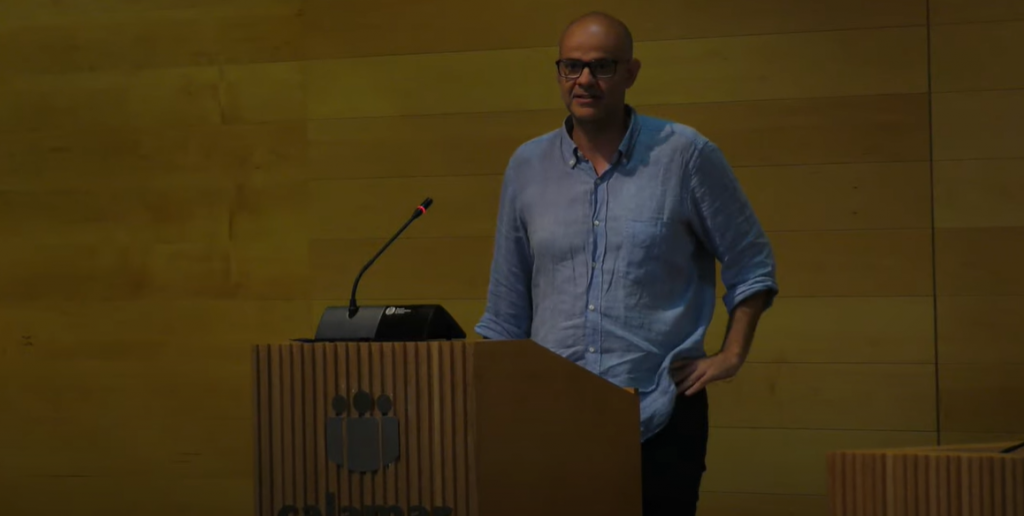
Marián Núñez Robles, president of the Association of Forest Owners of Eastern Andalusia for the sustainable development and conservation of biodiversity (FORET), presented convincing data on the situation of the forestry sector in Spain: 55% of Spanish territory is forested (the European average is 33%), it is the second country in Europe with the largest average forested area, and the trends until 2050 predict that this area will continue to increase. In 2005, the forested area exceeded the cultivated area. Spain is the most biodiverse country in Europe, with 118 SCIs. 28% of the forest area in Spain is public, the remaining 72% is in private hands. Marian also named the problems of the sector: 1) Lack of profitability, 2) Lack of cohesion, 3) Unequal investment depending on the competent administration. And the possible solutions: 1) Strong support from the financial sector and the administration, 2) Clear roadmap from the administration to incorporate the value of forests in public policies, 3) Create the necessary legal instruments that allow retribution for generating environmental benefits, 4) Encourage owners’ associations and stewardship entities.
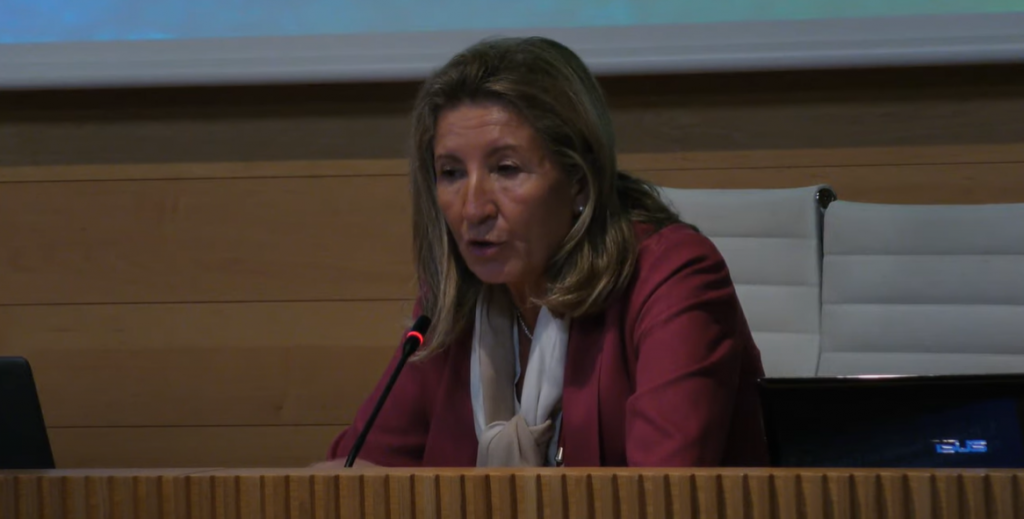
Óscar Prada Campaña, from the Land Stewardship Platform of the Biodiversity Foundation of MITECO, presented several successful cases of stewardship agreements, such as the Pro-diversity guarantee mark, which solved a social, economic and environmental conflict in the Cantabrian Mountains; or the Bearded Vulture project, which involved the agreement of 10 livestock farmers and the creation of a quality mark to promote the product in a differentiated way. The Platform currently has 3,100 agreements, in which 218 entities participate (30 town councils, 36 foundations and 146 associations) and manage 578,000 ha (data from 2019). 73% of these agreements are with private landowners and 50% are in Red Natura 2000.
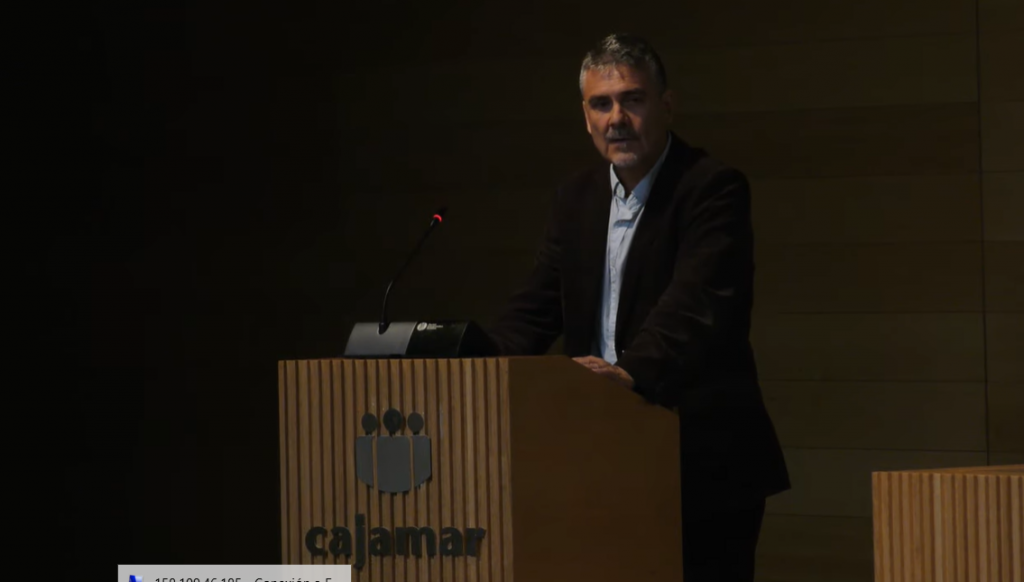
Our contribution to the event was the presentation by Diana Pascual Sánchez, coordinator of LIFE MIDMACC, who spoke about forest resilience and how we can manage forests to recover their functionality in the face of climate change. Through examples of adaptive forest management in different types of forest stands and the monitoring of various ecological variables over time, she illustrated how management is the key to improving forest resilience to drought events or fire risk. The importance of managing at the landscape level, recovering land use and land cover and recovering the mosaic landscape was also discussed. To this end, various proposals were made to recover the primary activity of the mid-mountains, a key modeller in the recovery of the mosaic landscape.
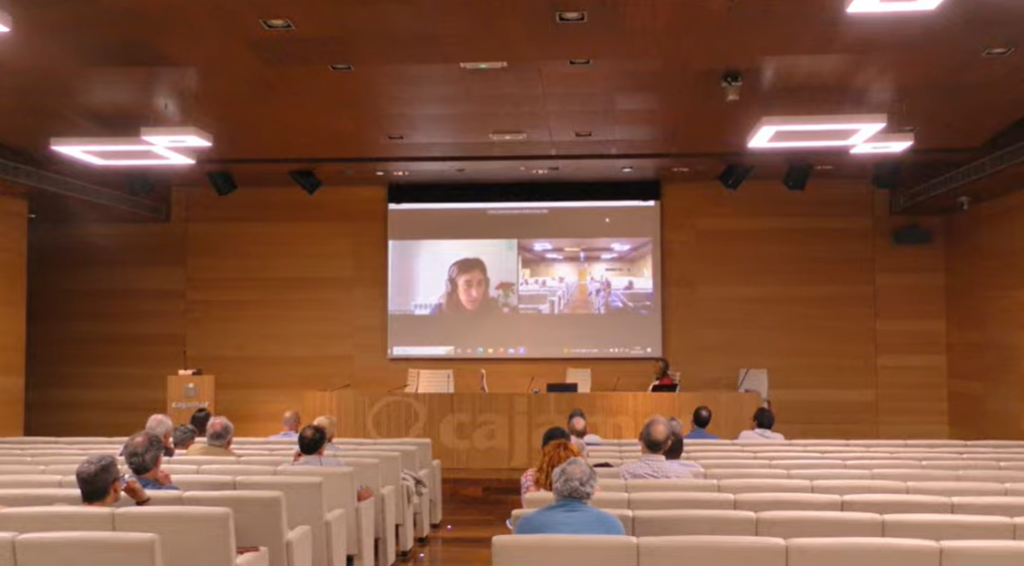
This was followed by a round table discussion moderated by Marian Nuñez, in which all the speakers took part together with Esther Pérez Salmerón (Sustainable Development Area of the Cajamar Group), Francisco Carreño Sandoval (president of COSE and PEFC Spain) and Jaime Lara (Andalusian Forestry Association). Many ideas and possibilities emerged from this round table to highlight the role of forests and the ecosystem services they provide. Summarising the conclusions is complex, but we invite you to watch the recording at:
